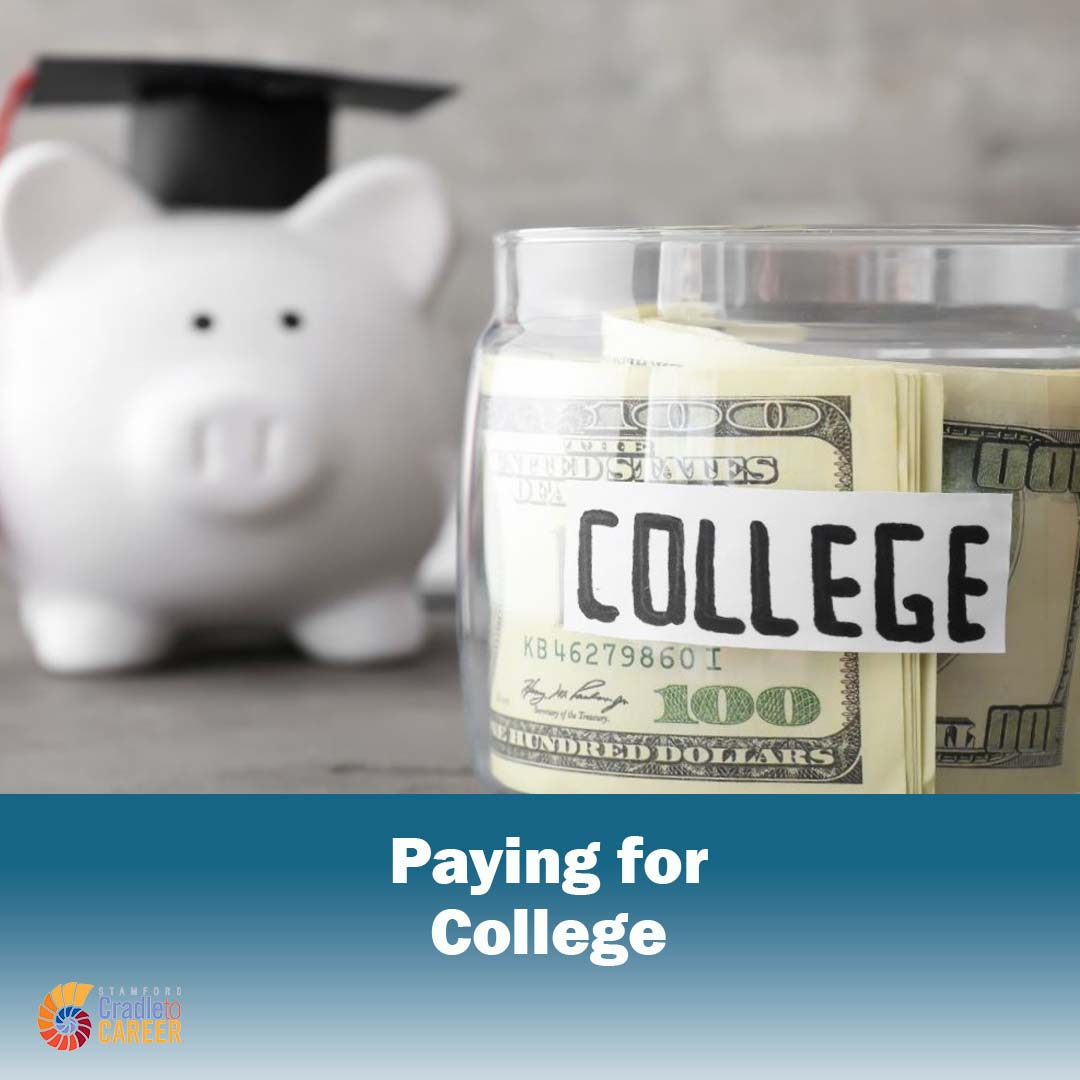Paying for College
Welcome To the ultimate guide on how to fund your college dreams without breaking a sweat! check out our tip tips on securing financial aid like a pro and master the are of snagging scholarships .
WHAT IS FINANCIAL AID?
Financial aid helps pay for college costs, like tuition, housing, and more.
Types of College Costs:
- Tuition and fees
- Room and board (housing and meals)
- Books and supplies
- Transportation
- Personal expenses
- Loan fees
- Study abroad expenses
- Dependent care costs
- Disability-related expenses
Financial Aid Types:
-
Grants and Scholarships: These are like “free money” you don’t have to pay back. Grants are based on financial need, while scholarships are for high achievers.
-
Work-Study: You work part-time to earn money for your education while you study.
-
Loans: You borrow money for college, but you’ll need to pay it back with interest later.
Sources of Financial Aid:
-
Federal government: Programs like Pell Grants and federal student loans.
-
State governments: State-specific grants and scholarships.
-
Colleges and universities: They offer their own aid packages.
-
Community organizations and groups: Some provide scholarships too.
Avoiding “Sticker Shock”:
-
College costs may seem high at first, but financial aid can bring the real cost down.
-
You and your family might pay less than the initial estimate with financial aid.
Learn More:
Explore different types of financial aid and understand how colleges award financial aid.
- Federal Grant Programs: Federal grant programs provide financial support to students based on their financial need and specific circumstances. Here’s a summary of these programs:
- Pell Grant: Pell Grants are awarded to undergraduate students who haven’t earned a bachelor’s or professional degree. Eligibility is determined by financial need as indicated on the Free Application for Federal Student Aid (FAFSA).
- Federal Supplemental Educational Opportunity Grant (FSEOG): FSEOG is for undergraduates with exceptional financial need. Students who receive Federal Pell Grants have priority for FSEOG awards, which are allocated by the college’s financial aid office based on FAFSA data.
- TEACH Grant: The TEACH Grant program supports students planning to teach in public or private elementary or secondary schools serving low-income families.
- Iraq and Afghanistan Service Grant: This grant is available to students not eligible for a Pell Grant, but whose parent or guardian served in the U.S. Armed Forces and died due to service performed in Iraq or Afghanistan after September 11, 2001.
- Federal Work-Study Program (FWS): The Federal Work-Study Program offers part-time employment for undergraduate and graduate students with financial need. It allows students to earn money to cover their educational expenses. The program encourages community service and on-campus jobs related to the student’s course of study. Work-Study jobs are allocated based on when you apply, your financial need, and the available FWS funds at your school. The earnings are paid directly to the student and are not credited to the college bill.
- Institutional Scholarships: Colleges provide their own grants and scholarships to bridge the gap between college costs and what a family can contribute through income, savings, loans, and student earnings. These awards may be based on academic merit, talent in the arts or athletics, financial need, or other factors. Check each college’s financial aid website for details on their institutional grants and scholarships.
- Private Scholarships: Private scholarships are offered by organizations or businesses to students who meet specific criteria. Local entities may provide scholarships to students planning to attend a regional college or pursuing a specific field of study. High school guidance counselors often have information about local and regional scholarships, and you can explore additional scholarships through various websites.
Federal Loan Forgiveness Programs:
-
Teacher Loan Forgiveness Program: Encourages individuals to teach in certain elementary and secondary schools that serve low-income families. Eligible teachers can receive forgiveness of up to $17,500 on specific types of federal student loans.
-
Public Service Loan Forgiveness Program: Encourages full-time work in public service jobs, with the possibility of loan forgiveness after making 120 qualifying payments while employed by eligible public service employers.
-
Perkins Loan Cancellation Programs: Provide loan cancellation for borrowers in certain public service roles or occupations.
Student Loans:
While student loans must be repaid with interest, they can be a valuable resource when scholarships, grants, and federal aid options have been exhausted. Federal loans are available through the Free Application for Federal Student Aid (FAFSA). If a funding gap remains after exploring federal options, private student loans are an alternative to consider. It’s crucial to thoroughly understand the terms and conditions of any loan, including interest rates, fees, and repayment options, before accepting it.
Private student loans are approved based on the borrower’s ability to repay and may involve a co-signer for better terms. It’s essential to compare loan terms, interest rates, and total lifetime costs before making a decision. Additionally, lower interest rates or benefits may be accessible based on factors like signing up for automatic payments.
Make sure to assess your options carefully and fully understand the responsibilities associated with loans. To learn more about responsible borrowing and loan options, consult reliable resources and financial aid offices.

